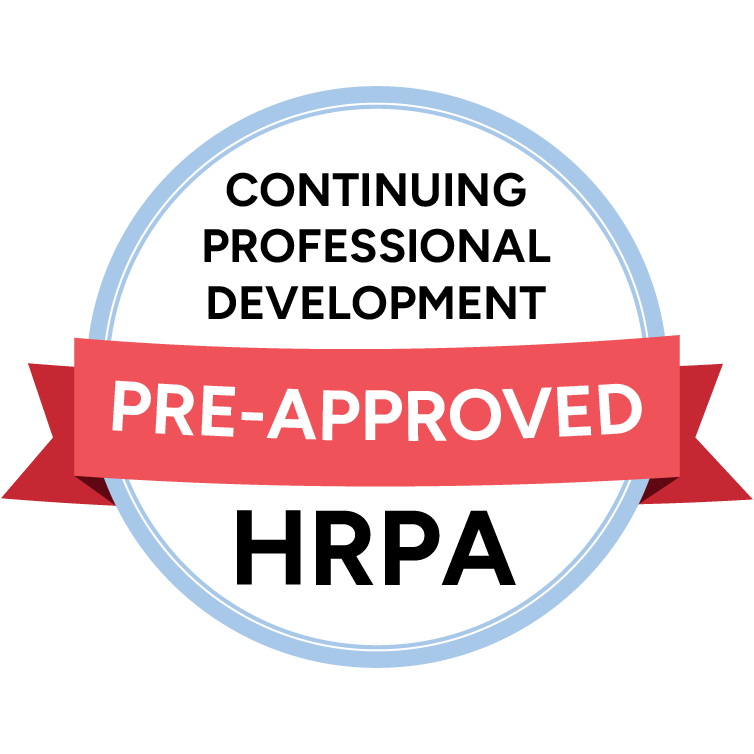Wednesday, October 8, 2025
Breakfast and Registration: 8:00 am – 9:00 am
Opening Remarks: 9:00 am – 9:05 am
This address will provide an overview of Canada’s economic outlook, focusing on the impact of U.S. tariffs and the country’s ongoing competitiveness challenges. We will then examine how these forces, together with structural factors such as population aging and rising retirement rates, are reshaping the labour market , particularly their effects on different demographic groups and what they mean for workers and employers across Canada.
In this session, panelists will delve into recent significant developments in federal and Ontario labour law, exploring guiding principles and emerging trends in a changing world of work. Panelists will address the latest cases on topics including:
- Government intervention in collective bargaining disputes raising issues of freedom of association under the Charter of Rights
- Employment standards and termination
- discharge and discipline
- off-duty conduct
- Economic issues
- Tariffs and economic uncertainty
- Workplace rights and responsibilities
- discrimination, harassment, and accommodation
- privacy
- drug and alcohol testing
- workplace investigations
- Freedom of expression
Panelists will also address recent federal and Ontario legislative and regulatory developments, such as:
- The Working for Workers’ Act series;
- updated government guidance regarding requirements under federal supply chain transparency legislation;
- legislation restricting the use of strike replacement workers passed federally; and
- Quebec legislation on arbitrator selection and government powers to pause or prohibit strikes.
Break: 11:05 am – 11:20 am
Sheila James
Director
Office of I-IDEAS Indigeneity- Inclusion, Diversity, Equity, Access and Social justice
Children’s Hospital of Eastern Ontario (CHEO)
From the global reckoning sparked by COVID-19, the murder of George Floyd, and findings of unmarked graves of children at former residential schools to the polarizing rhetoric of the present moment and escalating global conflict, equity, diversity, and inclusion (EDI) professionals are navigating workplaces that are increasingly divisive or silenced. This keynote explores the impact of policy changes in the U.S. on Canadian organizations. Which organizations have dropped their EDI programs, and which have retained them. How has the EDI conversation evolved — and how are professionals moving through these turbulent times.
Lunch: 11:50 am – 1:00 pm
Over five years after the onset of the COVID-19 pandemic, employers and unions continue to grapple with issues related to remote, hybrid, and in-person work. In this session, experts will provide insight into issues currently facing an employee’s return to the office (“RTO”), including: absenteeism, presenteeism, and the employer’s duty to accommodate to the point of undue hardship. Specifically, the following questions will be addressed:
- As a matter of law, do employers have the unfettered right to require employees to return to in-person work on a schedule determined by the employer? If there are limits on that right, what are they? How do workplace policies and collective agreement language affect the matter?
- Can an employee insist on remote work as a form of health-related accommodation? Will an employee be entitled to work from home during pregnancy? Does an employee’s susceptibility to contracting an illness at the workplace warrant accommodation? What is the type and scope of medical information that is required to support these requests?
- In what circumstances have decision-makers found that employees should be permitted to work from home, on a full-time or part-time basis, in order to accommodate obligations related to their family status, such as childcare or eldercare responsibilities? What kinds of information can employers require to support such a request? How can employers and unions distinguish an employee’s personal preferences from legitimate accommodation needs?
- How have arbitrators dealt with employees’ requests to work from home because of difficulty commuting to the workplace due to a disability? Does an employer have a duty to accommodate an employee’s commute to work where the employee has a disability? If so, what is considered reasonable accommodation?
- When will the return of an employee to in-person work amount to a bona fide occupational requirement (BFOR)? When will an employer be able to establish that undue hardship will arise if an employee is allowed to work remotely?
- How should employers and unions address increased absenteeism due to RTO? Are there working options that help improve attendance?
- How should employers and unions address presenteeism, i.e. when employees attend work knowing that they are ill and maybe contagious?
- What aspects of work-from-home or hybrid work arrangements should be specifically addressed in policies or collective agreement provisions. e.g. cost of equipment, availability for virtual meetings, office communications?
Break: 2:15 pm – 2:30 pm
This session will provide employers and unions with the best available insight into AI-driven management decisions, employee surveillance, and social media. Experienced management and union counsel will join an arbitrator to discuss three hypothetical scenerios relating to AI management, social media use, and surveillance.
Specific issues to be addressed include:
- What is the current role of AI-driven tools in management decision-making, and how is that role expected to evolve in the future?
- In what circumstances can an employer dismiss an employee for inappropriate social media posts? Where is the line between free speech and offensive speech?
- How are employers and unions addressing the use of algorithmic management in collective agreements?
- What arguments for and against the use of algorithmic management will arbitrators find most compelling?
- What arguments for and against the use of employee surveillance have arbitrators accepted or rejected?
- What legal concerns arise when an employer uses AI to assess candidates’ suitability for positions?
Conference End: 4:00 pm
Tuesday, October 7, 2025
Workshop
*Workshop sold separately from stand-alone conference.
Workshop schedule: 9:00 am – 4:00 pm ET
As awareness of mental health and neurodiversity grows, workplaces are adapting to create inclusive environments where neurodivergent employees can thrive. This includes understanding their unique strengths, providing necessary accommodations, and fostering a culture of acceptance and understanding. This interactive workshop will explore how employers, unions, and employees can work together to build inclusive environments that support neurodivergent individuals and those experiencing mental health challenges. Through panel discussion and practical scenarios, participants will address key questions, including:
- What does the term “neurodivergent” include? What are similarities and differences between learning disabilities, ADHD, and Autistic Spectrum Disorders (“ASD”)? What can be done to combat stereotypes affecting the inclusion and accommodation of neurodivergent employees and those with mental health issues in the workplace?
- What can employers and unions do to reduce the barriers faced by neurodivergent job seekers in the hiring and onboarding processes?
- What type of medical information can employers request from neurodivergent employees seeking accommodation, g. a neuropsychological or psychoeducational evaluation?
- How can employers, unions, and employees address systemic barriers at work throughout the employment relationship?
- What accommodations would be most helpful for employees with the following:
- Learning disabilities
- ASD
- Mental health disorders and conditions (i.e. bipolar disorder, depression, anxiety)
- Have legal obligations evolved to include a duty to promote workplace mental health and prevent workplace mental harms such as stress and burnout?
- What proactive steps can employers, unions, and employees take now to address organizational and individual factors contributing to stress and burnout?
- How can employers and unions measure efforts and progress toward workplace equity?
- What role are unions playing in setting workplace equity policies and programs, implementing them, and measuring their progress as it relates to neurodiversity initiatives?
- Is a ‘right to disconnect’ necessary to promote psychological health and safety? If so, how should this right be defined? Do amendments to Ontario’s Employment Standards Act, 2000 provide adequate guidance?
- What signs may indicate that an employee has a mental health condition or other condition that may require accommodation or support?
- How can employers and unions identify threats to mental well-being specific to their workplace?
Pricing
Conference Co-Chairs
Advisory Committee
Henry Huang
Crown Counsel
Treasury Board Secretariat, Legal Services Branch
Ontario Ministry of the Attorney General
CPD

This program (CPD Code) has been approved for 5 Continuing Professional Development (CPD) hours under Section A of the Continuing Professional Development Log of the Human Resource Professionals Association (HRPA).
- Members of the Law Society of Ontario may consider counting this program for 5 Substantive hours; 0 Professionalism hours.

This program (CPD Code) has been approved for 5.5 Continuing Professional Development (CPD) hours under Section A of the Continuing Professional Development Log of the Human Resource Professionals Association (HRPA).
- Members of the Law Society of Ontario may consider counting this program for 5.5 Substantive hours; 0 Professionalism hours.
DoubleTree by Hilton Ottawa Downtown
Reserve By:
Saturday, September 15, 2025. After this date, the special group rate will no longer be available and reservation requests will be based on availability that is subject to the hotel’s rates.
| Start Date | End Date | Room Type | Single |
| October 6, 2025 | October 9, 2025 | Standard 1 Kg Bed | $299 |
If any attendees wish to extend their stay by 3 days before the event (October 6, 2025) or 3 days after the event ends (October 7, October 9, 2025), they can easily modify their reservation by calling our front desk at 613-230-3033 or emailing us at doubletree@doubletreeottawa.com mentioning the group name example: Lancaster Individual.




















